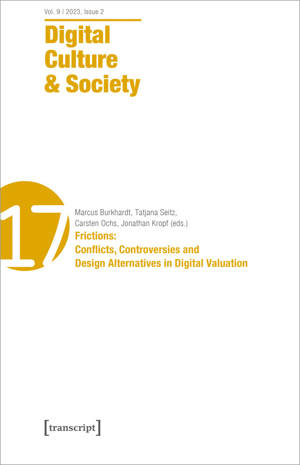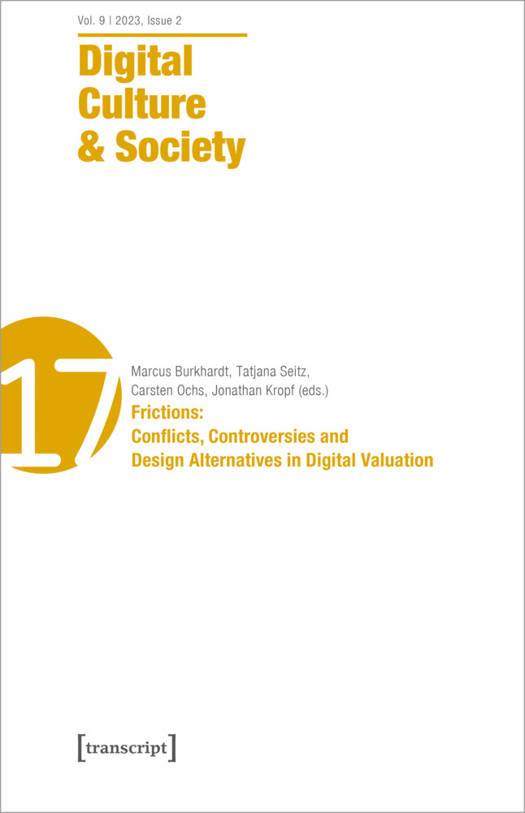
Bedankt voor het vertrouwen het afgelopen jaar! Om jou te bedanken bieden we GRATIS verzending (in België) aan op alles gedurende de hele maand januari.
- Afhalen na 1 uur in een winkel met voorraad
- In januari gratis thuislevering in België
- Ruim aanbod met 7 miljoen producten
Bedankt voor het vertrouwen het afgelopen jaar! Om jou te bedanken bieden we GRATIS verzending (in België) aan op alles gedurende de hele maand januari.
- Afhalen na 1 uur in een winkel met voorraad
- In januari gratis thuislevering in België
- Ruim aanbod met 7 miljoen producten
Zoeken
Digital Culture & Society (Dcs)
Vol. 9, Issue 2/2023: Frictions: Conflicts, Controversies and Design Alternatives in Digital Valuation
€ 62,95
+ 125 punten
Omschrijving
With the proliferation of smart devices such as smartphones, smart watches, and smart speakers as well as the ongoing push toward smart cities, humans, technologies, and environments have become entangled in increasingly complex yet seemingly frictionless infrastructures of datafication and computation. A seemingly frictionless user experience, however, conceals the contradictions, power asymmetries, and polarisations that shape our digital cultures. This issue of Digital Culture & Society takes the notion of frictions as a starting point for a situated analysis of our digital present. Frictions are sites where criticism is sparked, value conflicts are negotiated, and design alternatives are explored. By bringing together research from media studies, science and technology studies (STS), and sociology, this issue begins to synthesise and systematise the structural inconsistencies that frictions expose.
Specificaties
Betrokkenen
- Uitgeverij:
Inhoud
- Aantal bladzijden:
- 234
- Taal:
- Engels
- Reeks:
Eigenschappen
- Productcode (EAN):
- 9783837663587
- Verschijningsdatum:
- 11/03/2025
- Uitvoering:
- Paperback
- Formaat:
- Trade paperback (VS)
- Afmetingen:
- 170 mm x 244 mm
- Gewicht:
- 381 g

Alleen bij Standaard Boekhandel
+ 125 punten op je klantenkaart van Standaard Boekhandel
Beoordelingen
We publiceren alleen reviews die voldoen aan de voorwaarden voor reviews. Bekijk onze voorwaarden voor reviews.








